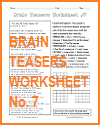 Requiring junior and senior high school students to keep a daily journal is a highly effective educational practice with numerous benefits. Journaling enhances literacy skills by providing regular opportunities for writing, which improves grammar, vocabulary, and clarity of expression. It also fosters critical thinking as students reflect on their experiences, analyze ideas, and articulate personal viewpoints. Additionally, journaling supports emotional and social development by encouraging self-awareness and stress management, helping students process their thoughts and emotions in a structured way.
Requiring junior and senior high school students to keep a daily journal is a highly effective educational practice with numerous benefits. Journaling enhances literacy skills by providing regular opportunities for writing, which improves grammar, vocabulary, and clarity of expression. It also fosters critical thinking as students reflect on their experiences, analyze ideas, and articulate personal viewpoints. Additionally, journaling supports emotional and social development by encouraging self-awareness and stress management, helping students process their thoughts and emotions in a structured way.
For teachers, journals offer insight into students' progress, allowing for personalized feedback and identifying areas needing improvement. The habit of daily writing also builds discipline and creativity, as students experiment with different styles and perspectives. Furthermore, journals serve as a record of growth, enabling students to track their intellectual and personal development over time.
Incorporating journaling into the curriculum is a simple yet powerful tool that strengthens academic skills while promoting mental well-being, making it a valuable practice for adolescent learners.
|
 Requiring junior and senior high school students to keep a daily journal is a highly effective educational practice with numerous benefits. Journaling enhances literacy skills by providing regular opportunities for writing, which improves grammar, vocabulary, and clarity of expression. It also fosters critical thinking as students reflect on their experiences, analyze ideas, and articulate personal viewpoints. Additionally, journaling supports emotional and social development by encouraging self-awareness and stress management, helping students process their thoughts and emotions in a structured way.
Requiring junior and senior high school students to keep a daily journal is a highly effective educational practice with numerous benefits. Journaling enhances literacy skills by providing regular opportunities for writing, which improves grammar, vocabulary, and clarity of expression. It also fosters critical thinking as students reflect on their experiences, analyze ideas, and articulate personal viewpoints. Additionally, journaling supports emotional and social development by encouraging self-awareness and stress management, helping students process their thoughts and emotions in a structured way.



















































